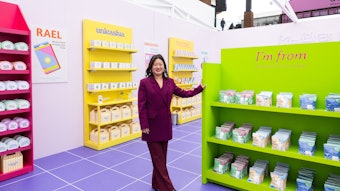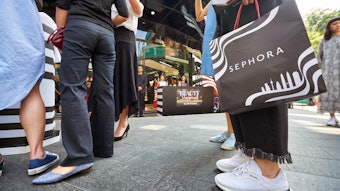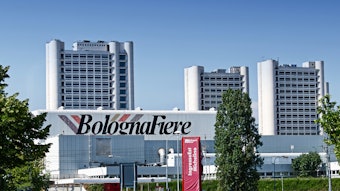For a cosmetics or personal care brand to expand into the nutricosmetics arena, beverages or dietary supplements offer fewer road bumps in the form of ingredients regulations and other challenges (stabilization, supply shortages, dosage confusion and so forth). In a recent report by the Natural Marketing Institute, Maryellen Molyneaux, president of NMI, says that vitamins, minerals, herbal and dietary supplements amounted to $21.7 billion in U.S. sales (up by 7%) in 2007.
Three years prior, Nestle and L’Oréal’s 50/50 joint venture, The Laboratoires Innéov, launched cosmetic dietary supplement Innéov Firmness (available at pharmacies), containing a proprietary form of lycopene, soy isoflavones and vitamin C, to improve skin’s firmness. In addition, P&G Beauty’s Olay and its partner, Pharmavite Corp., introduced Olay Vitamins’ Beauty Nutrients and Wellness Nutrients.
Supplement launches have only increased since then. In June 2008, Intelligent Nutrients, created by Aveda Corporation’s founder, Horst Rechelbacher, launched Intellimune Oil and Tablets (boosted with cold-pressed seed oil and meal from certified organic black cumin, red grapes, cranberries, raspberries and more). Other supplements on the market include Avon’s Wellness vitamins; Denmark’s Ferrosan Imedeen antiaging tablets; Kemin Corp.’s Derma Beauty skin rejuvenation vitamin supplements; Natrol’s dietary supplements for teen-aged skin health concerns; and PerriconeMD Cosmeceuticals’ proprietary blend of nutraceuticals targeted as nutritional skin care supplements.
With no shortness in international beauty brands demanding ingredients for such finished products, suppliers like capsule manufacturer Capsugel, with facilities in Mexico, France, Belgium, Thailand, Japan, Indonesia, China, India and the U.S., offer standardized and customizable liquid-fill formulas.
“The Capsugel turn-key solutions give the options of color, printing and packaging to set the brand apart and build business,” says Mark Vieceli, manager of business development, dietary supplements, Capsugel. “All of these features, with minimum order quantities, offer an easy entry into the marketplace.”
Whether a brand wants to help consumers fight the signs of aging or boost overall immunity, Capsugel works with the company and its raw material suppliers to match ideas with an appropriate delivery system such as a liquid capsule, powder in a capsule or a capsule-in-capsule with sustained release, multiple release, targeted release or co-release properties.
“The body can’t get the benefits of a supplement that isn’t absorbed well,” says Vieceli. “Research shows that consumers are willing to pay more for a product that will act fast, be fully absorbed in the body and is gentle on the stomach—in particular, liquid supplements. To help our customers appeal to the growing consumer interest in supplements with greater bioavailability, the Liquid Formulation Center creates and customizes liquid formulations for the Licaps brand, a proprietary liquid-fill delivery technology. Dosages range from micro to 1.3 grams per dose.”
Capsugel’s in-house “beauty from within” product combinations even target niche skin issues like sun damage via inner capsules of astaxanthin and outer capsules of pomegranate oil, or inner capsules of anti-inflammatory enzymes and outer capsules of pomegranate oil. Vieceli says “superfruits” like pomegranate or noni can be used in supplements to provide the same benefits of a drink without adding taste or unwanted calories. “Capsugel has formulated a superfruit blend composed of goji, mangosteen and noni in a plant-based Licaps liquid capsule, Vieceli adds. “Customers can also customize their own fruit blend and create unique products for their customer base.”
For more, read the GCI magazine September 2008 cover story, “Eat and Drink Your Skin Care.”










